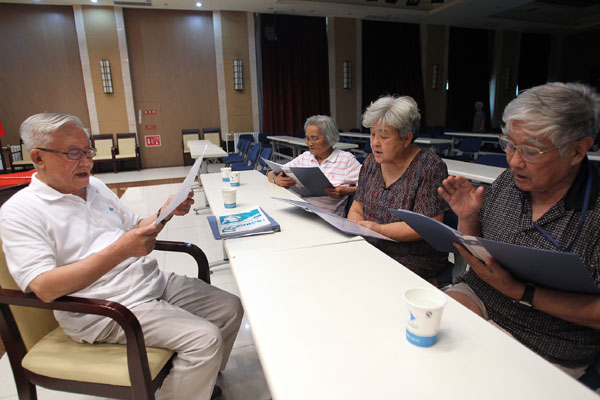The new temples of a twilight age
Updated: 2013-12-27 08:51
By Sun Li in Shaxian, Fujian province and Zheng Jinran in Yanjiao, Hebei province (China Daily)
|
||||||||
|
|
China has an aging population; in 2012, those aged 60 and older accounted for 14.3 percent, reaching 194 million of the 1.34 billion total at the time, and by the end of this year, the number will exceed 200 million, accounting for 14.8 percent, according to the China National Committee on Aging.
Some experts said more nursing homes are needed to provide basic physical services for seniors, but also stressed the importance of greater emphasis on the spiritual and psychological needs of the elderly.
"The government should encourage nursing homes to provide more diversified services for them," said Du Peng, a professor at the Institute of Gerontology at Renmin University of China in Beijing, who added that it is a sign of great progress that nursing homes have spaces in which seniors can pray.
He said a variety of organizations should be encouraged to build nursing homes for seniors, including religious institutions, but it is vital that they abide by the regulations in terms of construction and management.
Jixiang Temple employs two assistants and a cook to help care for the old people. The monthly per-person cost for food, utilities and medical care, is approximately 1,000 yuan ($163), which is covered by government funding and donations from businesses and private individuals, said Shi.
"Most of the residents are Buddhists. Initially, there were a few who didn't believe, but they all turned to Buddha after living in the home for a short while," she said.
After almost three years, Guan Hehua is still proud of her decision. "I was right to move. The home is a place of harmony and kindness. We have a really warm-hearted administrator. At dinnertime, Shi Nengqing is never in a hurry to eat. She takes a head count and if anyone is absent, she goes to the dorm to check on them," Guan said, placing her palms together in a Buddhist gesture of respect.
In terms of Buddhist practice, Guan regards the routine in the temple as "highly systematic".
"Not every temple in the county holds morning prayers, but at Jixiang Temple it's taken very seriously. We pray every morning, come rain or shine."
The regime has been adapted to take the ages of the residents into account, according to Yin.
"In some temples, morning prayers begin at 3:30 am, but here it's 4:30 am in deference to the advanced age of some residents. It's all very considerate," she said.
"We have three dishes and a soup. The menu changes every day, so it's a little like a self-service cafeteria where you can eat as much as you like."
When she's not practicing Buddhism, Yin is free to take walks, exercise or read and meditate in her shared room.
"Everything is free here. The experience has filled a spiritual void, so how could I ever feel unhappy here?" she asked.

 LeBron James is AP's Male Athlete of the Year
LeBron James is AP's Male Athlete of the Year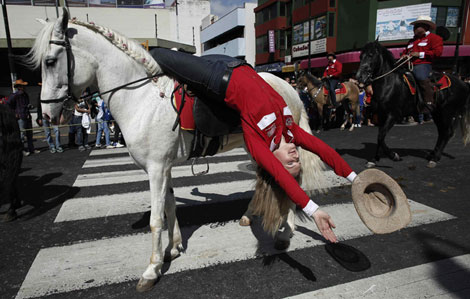
 Year-end horse-ride parade California
Year-end horse-ride parade California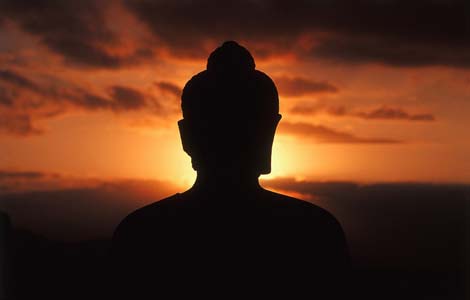
 Pick your new year sunrise
Pick your new year sunrise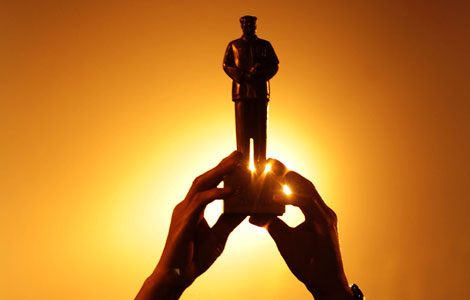
 Memorial a big draw on Mao's birthday
Memorial a big draw on Mao's birthday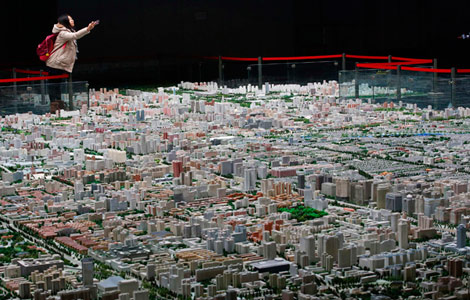
 China's urbanization rate to hit 60% by 2018
China's urbanization rate to hit 60% by 2018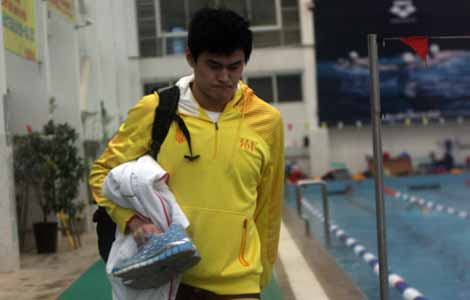
 Oly champion resumes training after scandal
Oly champion resumes training after scandal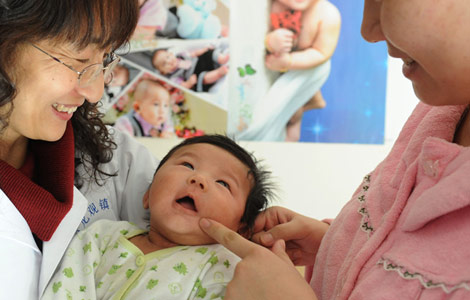
 Private clinics take on new role
Private clinics take on new role
 Obama thanks troops for service
Obama thanks troops for service
Most Viewed
Editor's Picks

|

|

|

|

|

|
Today's Top News
2013 sees loss of US credibility
Huge potential seen for preschool English in China
Chinese university leaders round-up ideas in Texas
Anger over Abe's World War II shrine visit
US sends missiles, drones to Iraq
US airbase relocation approved
Accounting fraud chills US investors
'An overall view' on Mao required
US Weekly

|

|
